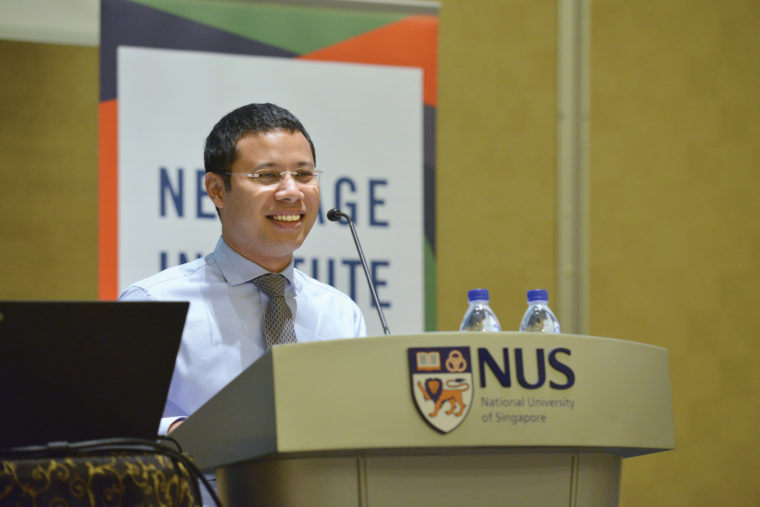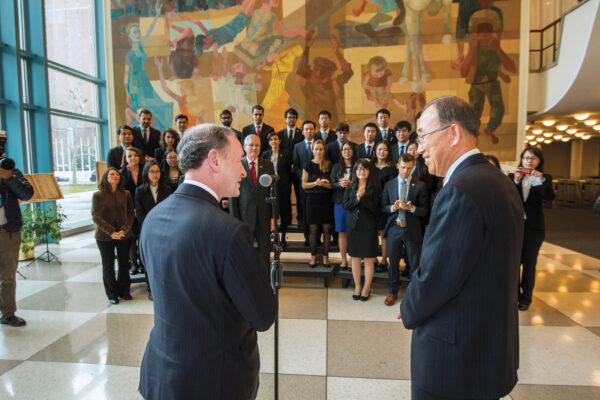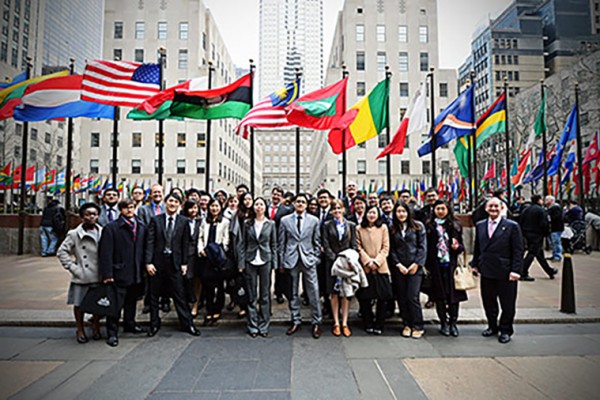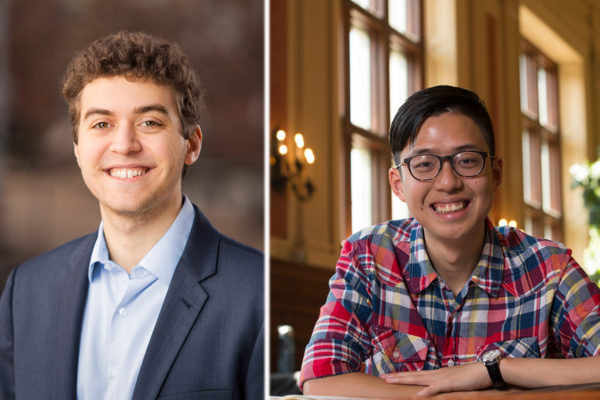This winter, Washington University and the National University of Singapore (NUS) partnered to present the multi-day symposia, “University Partnerships for Innovation: Advancing Human Well-Being.” The event included a symposium on mechanobiology, one on inclusion in asset building, and a special joint session on innovation partnerships. The aim was to illuminate applied research and innovations at the intersection of social policy, engineering and medicine.
“Washington University and National University of Singapore are global leaders in mechanobiology and lifelong asset-building policy,” says Michael Sherraden, the George Warren Brown Distinguished Professor and director of the Next Age Institute. He helped spearhead the conference. “The partnership between the two universities in these areas is strong and impactful. National University of Singapore was a fitting and desirable location for bringing together global collaborators.”
“Washington University and National University of Singapore are global leaders in mechanobiology and lifelong asset-building policy.”
Michael Sherraden
Mechanobiology is an emerging field that develops physics-based medical treatments and inexpensive miniaturized technologies that enable health care to reach resource-limited populations. Inclusive asset building creates and tests innovative policy tools that enable the poor to not just survive, but also grow and prosper.
Desmond Lee, minister for social and family development in Singapore, gave the keynote address and highlighted key pillars of inclusive asset building in Singapore. These include things like public housing and child development accounts, which are savings accounts established for children at birth and contributed to by institutions, parents and sometimes the government to secure a better future for impoverished children.
Dedric Carter, associate provost and associate vice chancellor for operations and technology transfer, delivered opening remarks and a keynote address on the many challenges of translating innovation to reality. Carter previously was a senior adviser at the U.S. National Science Foundation, where he developed the Innovation Corps program.
The event had 500 attendees and brought together five McDonnell International Scholars Academy partner institutions: WashU, NUS, Peking University, National Taiwan University and Xi’an Jiaotong University. The academy allows Washington University to partner with leading universities around the world and collaborate to solve global problems, or conduct research to advance our world.
“The symposia exceeded goals and expectations,” says Guy Genin, the Harold and Kathleen Faught Professor of Mechanical Engineering in the School of Engineering & Applied Science and co-director of the NSF Science and Technology Center for Engineering and MechanoBiology at WashU.
“Both symposia provided interactive platforms for diverse stakeholders, such as scholars, thought leaders, policymakers and practitioners, to engage with and learn from each other,” adds Genin, who, in addition to helping organize the event, is also a professor of neurological surgery in the School of Medicine. “The conversations were enormously productive, and several longer-term collaborations amongst McDonnell partners have grown out of them.”
“The conversations were enormously productive, and several longer-term collaborations amongst McDonnell partners have grown out of them.”
Guy Genin
One such sustained collaboration is that WashU and Peking University are planning a three-year (2018 to 2020) Child Development Account pilot project in China’s rural Shaanxi province, in response to the Chinese President Xi Jinping’s pledge to end poverty by 2020. This pilot project will target vulnerable children and use mobile technology to deliver financial services.
Further, WashU and NUS are collaborating to develop a new set of technologies to diagnose sources of infection in resource-limited settings. Determining the source of infection in a patient is a major source of uncertainty in medical practice. Enabling physicians to identify whether a patient suffers from a virus, bacterium, fungus or parasite would transform care.
Sherraden, Genin and the faculty and staff at both NUS and WashU who created the symposia hope to continue it.
Says Sherraden, “The theme of this conference is an important one that will continue to bring together Washington University’s international partners, and will be the subject of future conferences.”



